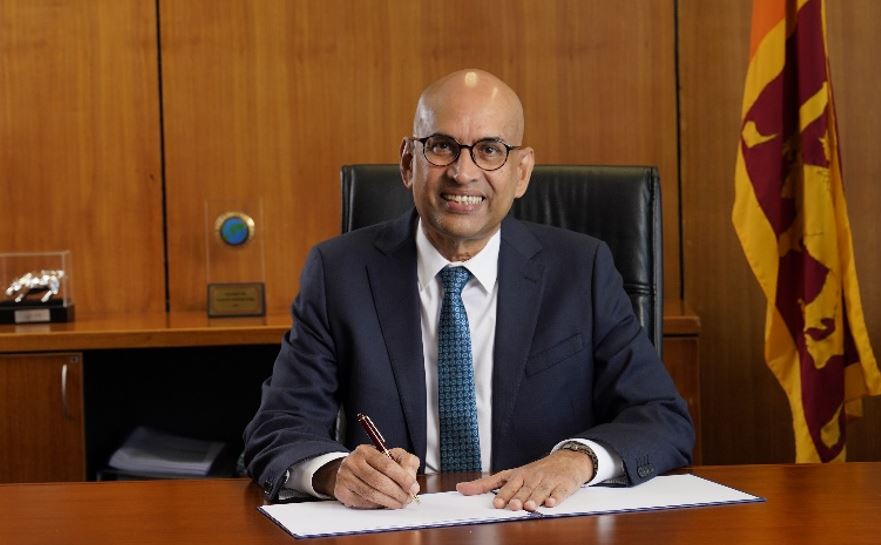
With the advent of the 10th annual CFA Capital Market Awards to be held in June this year, CFA Society Sri Lanka looks to provide insights from stakeholders who help make its flagship event a success. This includes the industry regulator – a key proponent of the awards that recognize and reward professionals who have established benchmarks for the advancement of domestic capital market participants.
As the regulator of the local capital markets, the Securities and Exchange Commission of Sri Lanka (SEC) has worked in close collaboration with CFA Society Sri Lanka over the years. This includes providing useful inputs in the policy formulation process vis-a-vis revising corporate governance and listing rules applicable to entities listed on the Colombo Stock Exchange (CSE), real estate investment trusts (REITs), Global Investment Performance Standards (GIPS), and the Asset Manager Code.
Commenting on the value of the CFA qualification and how it helps shape the knowledge level, investment, and research standards in the industry, Chairman of the SEC Faizal Salieh states that “the CFA qualification is a benchmark and passport to financial markets anywhere in the world. Investment Banks, Credit rating agencies, insurance companies, pension funds, and even market regulators are recruiting CFA charterholders to their ranks.”
“Improved research output within the capital market industry has enabled investors to make better investment decisions and enhanced investor confidence in the market,” the SEC Chairman adds.
Investment research in the country has improved over the years due to the rigorous assessments set forth by the CFA Capital Market Awards, according to the SEC Chairman, who notes that the awards scheme has a rigorous assessment process while also providing post-award feedback to all participants on how they can improve in the future, helping uplift investment research capabilities and standards in the industry.
Salieh also highlights the benefit of the CFA Capital Market Awards to wider stakeholders such as regulators, brokers, and investors: “The awards program encourages, recognises and rewards professionals who have established benchmarks for high-quality research in the capital market, inspiring industry professionals to set high standards in research that will enable investors to make research-based investment decisions.”
Regarding the need for market participants to adopt environmental, social, and governance (ESG) standards, he observes that “there is increasing investor activism on ESG. Therefore, it is important that listed entities take steps to effectively measure and communicate the ESG performance and impact to all stakeholders. ESG reporting would enable companies to access global funds dedicated to ESG investing.”
CFA Society Sri Lanka also commenced a certification program in ESG investing to produce a strong pool of individuals for ESG investing and broader ESG-related know-how in Sri Lanka. Given the expertise and material available at CFA Institute in relation to ESG, both the SEC and CSE have requested the Society to be the Education Partner on ESG to educate investors and capital market participants. CFA Society Sri Lanka has also signed a tripartite MOU with the CSE and SEC to further strengthen the ESG focus in the Sri Lankan capital market.
The SEC Chairman is of the view that there is progress towards economic recovery with International Monetary Fund (IMF) support and the government’s commitment to the public sector reform process.
“Economic recovery and growth will have a positive impact on the capital market. Whilst this might take more than 1 or 2 years, it is important to have a positive mindset and collectively work towards rebuilding trust and confidence among investors, particularly foreign investors, in our capital market,” he remarks.
As for the role played by investment research in such market conditions, the SEC Chairman asserts that “good quality research is of crucial importance to the capital market. Given current company valuations being at a low level, and the anticipated upside from the IMF and debt restructuring program, we expect analysts to provide fair valuations and not publish reports for the sake of pushing stocks. We envision ethical and transparent analysis of company stocks by analysts.”
He concludes by pointing to the role CFA Society Sri Lanka is expected to play in shaping investment research standards through market conditions: “During these challenging times, the Society should actively guide and help the investment research industry follow best practices and continuously maintain high standards. This will improve investor confidence in the research output in the capital market.”
CFA Institute is the global association of investment professionals that sets the standard for professional excellence and credentials. Founded in 2001, the CFA Society of Sri Lanka is a not-for-profit organisation supporting the professional development and advancement of CFA Charterholders and candidates in Sri Lanka. Its membership of over 275 members consists of CEOs, CFOs, portfolio managers, equity analysts, banking professionals, investment advisors, and other senior-ranking financial practitioners and over 500 candidates, mainly in the financial sector



